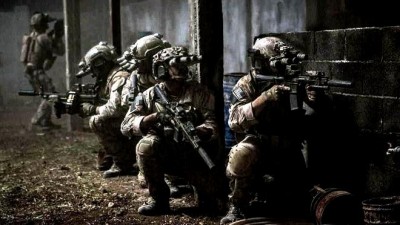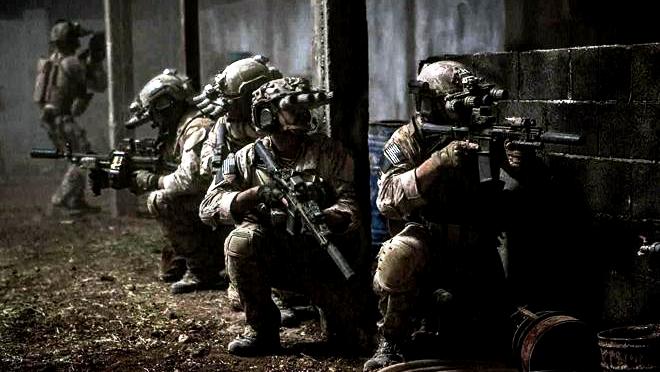Hayat Alvi for BeyondHeadlines
“The real and lasting victories are those of peace, and not of war,” said Ralph Waldo Emerson.
When is the last time anyone resolved a conflict without militarization? It seems that for the last several decades the default response to wars and conflicts has been more weapons and troops or proxy support for warring parties. Only after years of bloodshed do the powers that be in today’s global order decide to sit down and negotiate peace. When we examine the case of Syria’s civil war, we see a perpetuation of this troubling trend.
 The Obama administration’s recent decision to help select rebels in the Free Syrian Army (FSA) by supplying them with weapons, intelligence, and other resources illustrates that the status quo is alive and well. Nothing dynamic has come out of the direction in which this is going. There are no global mechanisms to rescue innocent civilians from mass atrocities, which is something the “Responsibility to Protect” (R2P) framework embodied in the UN aspires to implement. While it may have been effective in protecting civilians from Colonel Qaddafi’s forces and hired thugs, Libya is still in a state of chaos and violence. Plus, R2P’s bankruptcy blatantly and mockingly exposes itself in view of the climbing death toll, now reaching 100,000 in Syria.
The Obama administration’s recent decision to help select rebels in the Free Syrian Army (FSA) by supplying them with weapons, intelligence, and other resources illustrates that the status quo is alive and well. Nothing dynamic has come out of the direction in which this is going. There are no global mechanisms to rescue innocent civilians from mass atrocities, which is something the “Responsibility to Protect” (R2P) framework embodied in the UN aspires to implement. While it may have been effective in protecting civilians from Colonel Qaddafi’s forces and hired thugs, Libya is still in a state of chaos and violence. Plus, R2P’s bankruptcy blatantly and mockingly exposes itself in view of the climbing death toll, now reaching 100,000 in Syria.
Throwing weapons and proxy support to a group of rebels seeking to overthrow the Bashar al-Asad regime is not the answer to this complex problem. And, there is certain nonchalance in the manner in which the Obama administration has drawn the line in the sand with Syria, although President Obama claims he thought long and hard about this decision upon surveying volumes of extremely complex information pertaining to the conflict. In the eyes of many analysts, it looks more like the administration caved under the pressures of the orthodox Sunni axis, comprised of the Persian Gulf Arab states. The sectarian fault lines are not only severe, but also are erupting with greater force and violence throughout the region as we speak. The Syria conflict has more to do with Iran’s support for Asad’s Alawite regime, a minority Shia offshoot sect ruling over a Sunni majority, which, in the context of the Arab Spring revolts, provided the ideal opportunity for Iran’s adversaries to change the balance of power.
For the Obama administration, the situation has become a case of painting itself into a corner, first by President Obama’s vocal calls for Asad to step down. Second, the “red line” warning about the regime’s alleged use of chemical weapons offered a chance for Asad to call President Obama’s bluff. However, there are also reports of FSA rebels allegedly using chemical weapons as well. The bottom line is that only one thing is clear: lack of clarity prevails.
The problem with this whole scenario is the revealing impotency of R2P and the global community’s moral bankruptcy. It has gotten so bad that the interested parties involved in the conflict cannot even decide on an approach to talks, negotiations, or agendas of delegations. This gives global powers the ideal opportunity to fall back on the status quo ante: pick a dog in this fight and arm him to the teeth. How often have we seen this replay over the last 60+ years? Have we learned nothing? Where is the dynamic leadership that would toss ultimatums in Asad’s face, compelling him to talk peace and compromise? Syria’s civil war also illustrates the United Nation’s complete powerlessness and truly archaic construct. The need for the UN to reform could never be more potent.
The global leadership vacuum is analogous to a black hole, with no one showing courage to climb out of the sucking, mutually reinforcing nihilism and ruination.
Peace requires moral courage and exceptional leadership. Peace requires sustainability and commitment. Peace requires the absence of rhetoric and Orwellian doublespeak. Peace requires out-of-the-box thinking, strong will power, reconciliation, and sacrifices. Peace requires holistic, comprehensive, sincere, and just conflict resolution.
Militarism is the opposite of all that. Militarism, including proxy militarism, allows fighters and their backers to go through the motions of seeing the fight through, no matter how long that takes. Militarism is not conflict resolution; rather, it’s conflict escalation and perpetuation.
There is no disputing the fact that Asad is committing genocide of his own people. There is also no disputing that some FSA fighters are shady extremists, who have already proven to be unpalatable to fellow Syrians, let alone anyone else. Allowing this scenario to persist and even escalate is a recipe for an even greater disaster for Syria, Lebanon, Iraq, and potentially Turkey and Jordan too. We have already witnessed some aspects of regional escalation and expansion of the Syrian conflict and sectarian violence. In fact, sectarian hate-speech has spread far and wide, even in South Asia. More Pakistani and Indian Muslims are starting to reveal their respective sectarian prejudices, and in fact Pakistan harbors hard-line Sunni terrorist groups who systematically target Shias in well-coordinated attacks. The most recent such attack was carried out by a female suicide bomber who killed a busload of primarily Shia female university students.
Where does this end? As it looks now, the acts of violence, hatred, bloodlust, and sectarian prejudice are rising and intensifying. Meanwhile, Western powers blindly supply more weapons to select FSA fighters. The Middle East region continues to be one of the top arms purchasers in the world. With each passing day, the region is less and less safe and secure. Cascading negative effects on the region’s economic, political, and socio-cultural development are worsening.
What this militarism has done is irrevocable damage to the integrity of R2P, rather than reinforcing it. Militarism denies opportunities for comprehensive R2P-related negotiations and diplomacy. Militarism negates the idea that civilians can be rescued from atrocities non-militarily. That may be the greatest casualty in all this, because in the modern era we are spinning our wheels, instead of showing how innovative, nonviolent mechanisms, maneuvers, and tools can be used to protect civilians from existing and/or future mass atrocities. If we cannot live up to the 21st century challenge of relegating militarism into the dustbin, while at the same time finding dynamic ways to protect civilians from assured threats and death, then what’s left? Apparently, we can go to the moon, and maybe even to Mars soon, but we miserably fail in conflict resolution. We fail repeatedly to come up with ways to eliminate violence, conflict, and militarism, especially in the Middle East. It seems that no one is even trying.
I close with another Ralph Waldo Emerson quote: “Peace cannot be achieved through violence; it can only be attained through understanding.”
(Dr. Hayat Alvi is an Associate Professor at the US Naval War College, Newport, Rhode Island. She can be reached at hayat@hayatalvi.com. The views expressed here are personal.)






















